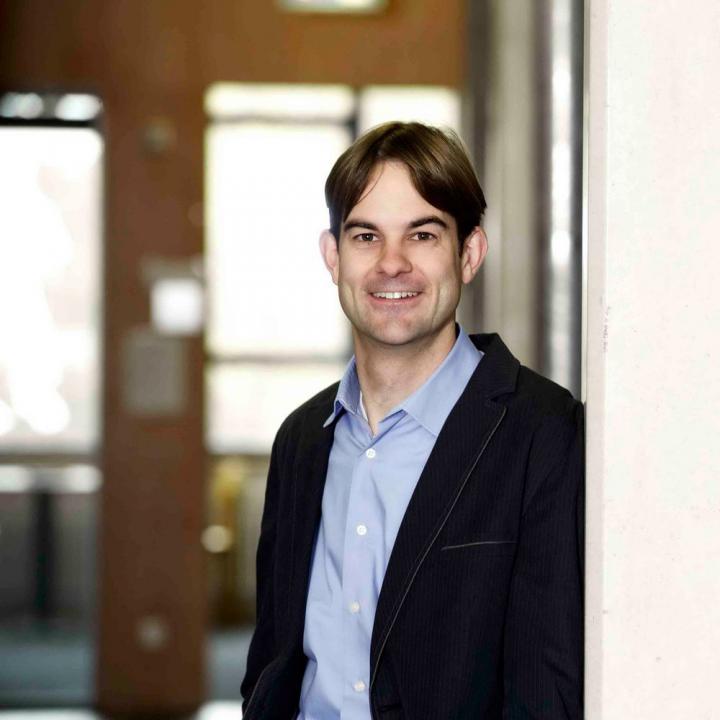
Credit: University of Konstanz
Modern protest movements, from the Arab Spring to Fridays for Future to the current protests in Hong Kong, are almost unthinkable without modern digital technology. These movements organize themselves, rally support, and spread their messages digitally. In today’s world, digital tools from secure messaging apps to online forums and chat rooms are a major part of a protest movement’s relative success. At the same time, autocratic systems such as China often massively curtail use of the Internet. There are many signs that this, too, is a successful strategy: suppressing and controlling the spread of information and identifying groups of potentially “dangerous” individuals definitely yields results.
There can be no doubt that the rise of information technology has had a profound impact on autocratic regimes and social movements. Yet among many case studies, there has been a relative lack of comparative work looking into the complex interplay between autocratic regimes, protesters, and digital technology. Prof. Dr. Nils B. Weidmann of the Cluster of Excellence “The Politics of Inequality” at the University of Konstanz and Dr. Espen Geelmuyden Rød of Uppsala University (Sweden) have now published “The Internet and Political Protest in Autocracies”, a book to offer a more comprehensive view. The volume sets out to deliver a complex answer to a simple question: Should dictators love or hate the Internet?
“Until a few years ago, there were basically two camps among researchers: those who see the Internet as a powerful tool of liberation, and those who call it a repression technology. We wanted to go beyond this simple distinction: the Internet can have effects in both directions, supporting autocratic regimes, but also catalyzing protest movements” says Nils Weidmann. “In order to show this, we needed to look more closely than most studies have done so far. So instead of conducting an analysis at the country level, we zoomed in and looked at how Internet connectivity affected the occurrence, but also the duration of protest at the city level”, adds Espen Geelmuyden Rød. “We also wanted to study other relevant aspects: How quickly and how far does protest spread between cities? How do autocratic governments respond, and how do these responses affect the re-occurrence of protest? It was a lot to unpack”, Rød summarizes the five-year effort.
So to conduct their research, the authors not only collected new data on political protest in autocracies, and also developed a new method to estimate Internet penetration at the level of cities. Their ‘Mass Mobilization in Autocracies Database’ is available online to the research community, and was already recognized with an Honorable Mention at the 2019 Lijphart/Przeworski/Verba Dataset Award from the American Political Science Association’s Comparative Politics Section.
As societies modernize, Internet technology spreads – but in contrast to democracies, the spread of technology under autocratic regimes is to a large extent state-controlled. This gives autocratic governments many useful new tools, which result in increased observation and censorship capabilities. Hence, Weidmann and Rød found that higher Internet penetration reduced protest occurrence in the long run. However, once established, political mobilization can spread fast via online channels, which are difficult to contain. So whenever protests do flare up despite increased suppression, these protests can be expected to gain momentum much more quickly and widely in highly digitized societies.
“All in all, introducing and expanding digital technology in autocratic societies has turned out to be something of a double-edged sword”, Nils Weidmann summarizes his and Rød’s results. “The Internet is clearly used as a tool of repression in many autocracies. But it can become a tool of liberation under the right circumstances, too.”
###
Facts:
- Publication: Nils B. Weidmann, Espen Geelmuyden Rød (2019): The Internet and Political Protest in Autocracies (Oxford Studies in Digital Politics). Oxford University Press. 224 pages, ISBN: 9780190918316. Website: https:/
/ global. oup. com/ academic/ product/ the-internet-and-political-protest-in-autocracies-9780190918316 - Prof. Dr. Nils Weidmann is Professor of Political Science, Department of Politics and Public Administration, University of Konstanz. He heads the “Communication, Networks and Contention” Research Group, and is a Principal Investigator and Co-Speaker of the Cluster of Excellence “The Politics of Inequality”.
- Espen Geelmuyden Rød is a Postdoctoral Researcher at the Department of Peace and Conflict Research, Uppsala Universitet, and the Principal Investigator of the “Protest, Democratization, and Escalation to Large-scale Political Violence” project funded by the Swedish Research Council.
- Book launch to be celebrated December 3, 2019 at the University of Konstanz (details to follow).
- The book is a result of the Sofja Kovalevskaja Award Project “The Web as a Curse or Blessing?” (2012-2017), headed by Nils Weidmann and supported by the Alexander von Humboldt Foundation.
Note to editors:
You can download images here:
https:/
Caption: Prof. Nils Weidmann, Professor for Comparative Politics of Non-democratic States at the University of Konstanz
https:/
Caption: Espen Geelmuyden Rød, Ph.D., is a Postdoctoral Researcher at the Department of Peace and Conflict Research, Uppsala Universitet
https:/
Caption: “The Internet and Political Protest in Autocracies” (Oxford Studies in Digital Politics)
Media Contact
Julia Wandt
[email protected]
Original Source
https:/




